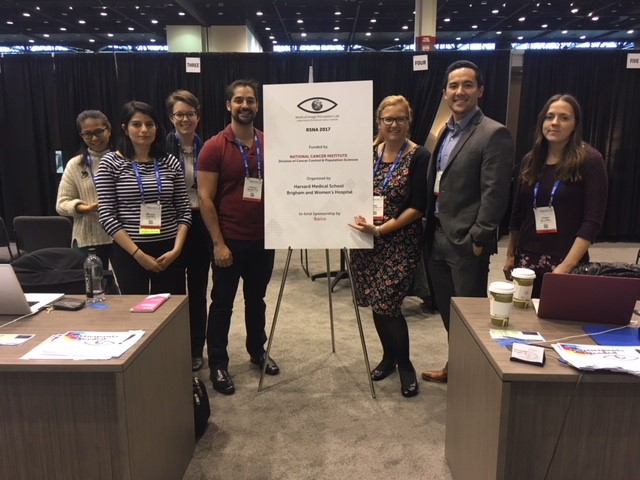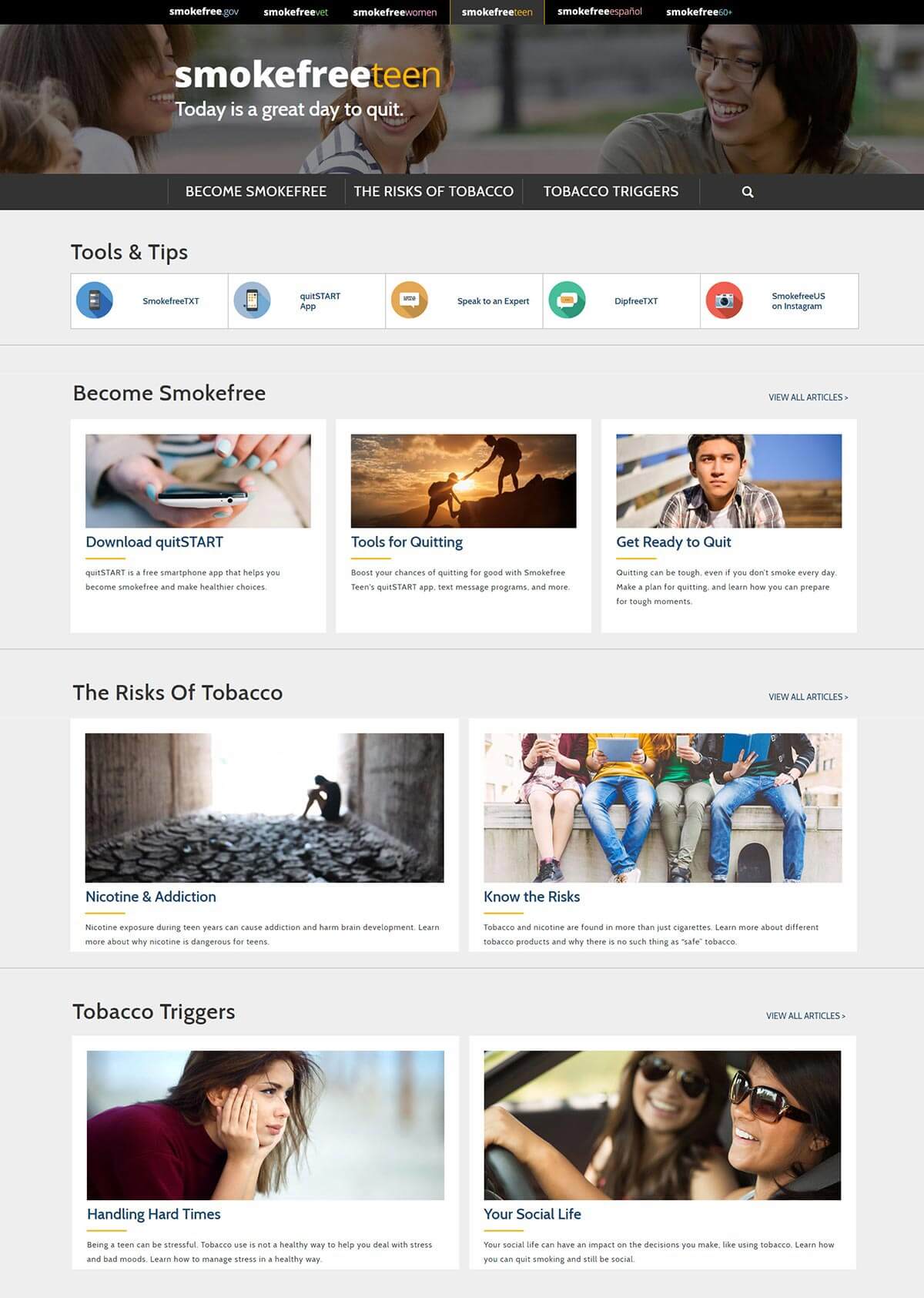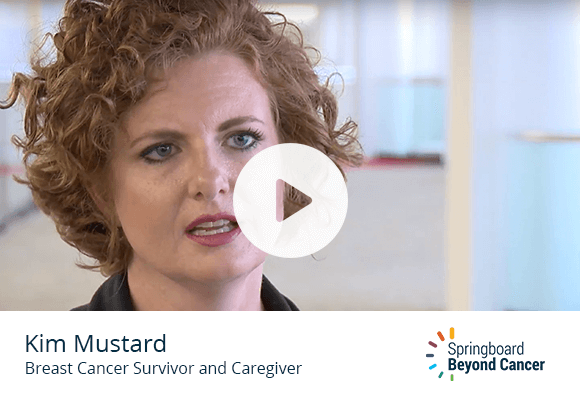Foreword by William Klein, Associate Director

As the temperatures and autumn leaves continue their descent and the holidays beckon, it is a fitting time to reflect on this year’s activities. 2017 has been a very productive year for NCI’s Behavioral Research Program, and we look forward to an equally active year in 2018.
In FY2017 we invested $133M in grants devoted to the role of behavioral processes in cancer control, which includes the addition of 53 new grants. We also led or joined several new funding opportunities in areas such as medical adherence to oral chemotherapy, intensive longitudinal analysis of health behaviors (with the NIH Office of Behavioral and Social Sciences Research), smoking cessation efforts at cancer centers, and electronic nicotine delivery devices. These build on funding opportunities published in 2016 in such areas as integrative data analysis, behavioral moderators of population-level cancer control strategies, and cognitive effects of chemotherapy.
Always looking for new and innovative ways to support emerging research, we hosted a “sandpit” style event in collaboration with Cancer Research United Kingdom (CRUK) that led to the development of five promising projects. Other notable milestones include the development of key publications – tobacco control monographs on the economics of tobacco control, a JAMA Dermatology commentary endorsing interdisciplinary approaches to sun safety based on a meeting we sponsored at the National Academy of Sciences in 2016, and a theme issue in the American Journal of Preventive Medicine highlighting methodological innovations and key findings from our Family Life, Activity, Sun, Health, and Eating (FLASHE) study of parent-adolescent dyads. We released these FLASHE data to the public along with two new data sets from our Health Information National Trends Survey (HINTS) program, and hosted numerous meetings on emerging areas of science such as the science of resilience.
To foster the development of our scientific workforce, this summer we hosted our first intensive grantsmanship workshop for Early Career Investigators. We also welcomed several new postdoctoral Cancer Prevention Fellows to the program. Our program continues to devote resources to key initiatives such as smokefree.gov, the team science toolkit, and the grid-enabled measures (GEM) portal.
With new NCI Director Ned Sharpless now at the helm, we plan to continue developing new funding, training, and scientific initiatives over the coming year. Please enjoy this season’s newsletter as it details some of the above items as well as new scientific advances and much more. Even more importantly, BRP wishes our community a safe, happy, healthy, and fulfilling holiday season and new year.
As always, we welcome your feedback. Please do not hesitate to contact any member of the BRP staff to find the appropriate contact for a potential grant application or research project, view our network of mentorship and collaboration, and learn more about the behavioral research we support.
Funding
We are pleased to announce several new BRP-initiated and BRP-supported Funding Opportunity Announcements (FOAs). Please visit the Behavioral Research Grants page or the Division of Cancer Control and Population Sciences (DCCPS) Funding Opportunities page for a complete listing.
| Funding Opportunity Announcements | Program Contact |
|---|---|
|
Electronic Nicotine Delivery Systems (ENDS): Population, Clinical and Applied Prevention Research |
For cancer-related FOA questions:
Rachel Grana Mayne For general FOA questions: Dionne Godette-Greer |
|
Science of Behavior Change: Revision Applications for Use-inspired Research to Optimize Adherence, Behavior Change Interventions, and Outcomes RFA-RM-17-022 (R01) |
For cancer-related FOA questions:
Paige Green For general FOA questions: Will M. Aklin |
|
Testing Interventions for Health-Enhancing Physical Activity PAR-17-306 (R01 - Clinical Trial Optional) |
Frank Perna |
Staff Announcements
BRP Welcomes New Fellows

Jamie Cordova, M.P.H., is a Cancer Research Training Award Fellow in the Health Communications Internship Program. Her fellowship is in the Tobacco Control Research Branch, and her work will support evidence synthesis and reporting on tobacco control activities.

Korrina Duffy, Ph.D., is a Cancer Research Training Award Postdoctoral Fellow in the Basic Biobehavioral and Psychological Sciences Branch. In this role, she works at the intersection of neuroscience, psychoneuroendocrinology, social psychology, and cancer-risk behaviors.

Jennifer Guida, Ph.D., M.P.H., is a Cancer Research Training Award Postdoctoral Fellow in the Basic Biobehavioral and Psychological Sciences Branch. Dr. Guida is interested in elucidating the biological pathways of psychosocial effects on quality of life for cancer survivors.

Jarrett Johnson, Dr.P.H., M.S., is a Cancer Prevention Fellow in the Basic Biobehavioral and Psychological Sciences Branch. Dr. Johnson researches health education and health promotion strategies to improve prostate cancer outcomes for African-American men across the continuum of care.

Anne K. Julian, Ph.D., is a Cancer Prevention Fellow in the Health Behaviors Research Branch. Dr. Julian’s research focuses on UV exposure and protective behaviors; survey measurement and misclassification; and consumer perceptions of sunscreen products.

Dannielle Kelley, Ph.D., M.P.H., is a Cancer Prevention Fellow in the Health Communication and Informatics Research Branch, and she holds a secondary affiliation in the Tobacco Control Research Branch. Dr. Kelley’s research focuses on the role of health communication across the cancer continuum.

Lilian Perez, Ph.D., M.P.H., is a Cancer Prevention Fellow in the Health Behaviors Research Branch. Dr. Perez’s research focuses on the neighborhood environment, obesity-related health behaviors, and cancer health drivers.

Calvin Tribby, Ph.D., M.P.H., M.S., is a Cancer Prevention Fellow in the Health Behaviors Research Branch. Dr. Tribby’s research focuses on how the built environment and transportation systems support or deter physical activity and how these can address obesity.

Jessica Welch, B.S., is a Cancer Research Training Award Fellow in the Basic Biobehavioral and Psychological Sciences Branch. Her research interests include behavior modification, motivation, personality, and emotions as they relate to high-risk cancer behaviors.
Scientific Advances
Tobacco Companies Begin Issuing Corrective Statements
After a 17-year legal battle, this November the three major US tobacco companies issued the first in what will be a series of five corrective statements about their products ![]() . These court-ordered statements will explain in plain language the reality of the harms inflicted by tobacco products and address many common misconceptions about cigarettes. The statements appeared in major newspapers and will also run as TV spots during prime-time viewing hours over the next year. The corrective statements are the result of a federal racketeering lawsuit brought against the tobacco companies in 1999 by the Department of Justice (DOJ). While NCI did not have a direct role in the lawsuit, NCI-funded research was cited often in the case and many NCI-funded researchers were asked to testify about their research findings. DOJ also asked NCI to evaluate potential wording for the corrective statements to help provide the court with a scientific foundation for determining how the proposed statements would affect consumers. The analysis was led by BRP program director Kelly Blake, and was conducted in 2010-2011 and filed as an Expert Report in the case. Read the Cancer Currents blog post to learn more about the corrective statements and NCI’s role in the lawsuit.
. These court-ordered statements will explain in plain language the reality of the harms inflicted by tobacco products and address many common misconceptions about cigarettes. The statements appeared in major newspapers and will also run as TV spots during prime-time viewing hours over the next year. The corrective statements are the result of a federal racketeering lawsuit brought against the tobacco companies in 1999 by the Department of Justice (DOJ). While NCI did not have a direct role in the lawsuit, NCI-funded research was cited often in the case and many NCI-funded researchers were asked to testify about their research findings. DOJ also asked NCI to evaluate potential wording for the corrective statements to help provide the court with a scientific foundation for determining how the proposed statements would affect consumers. The analysis was led by BRP program director Kelly Blake, and was conducted in 2010-2011 and filed as an Expert Report in the case. Read the Cancer Currents blog post to learn more about the corrective statements and NCI’s role in the lawsuit.
Toxic Substances in Secondhand Smoke from Hookah
A study funded in part by the Tobacco Control Research Branch shows hookah smoking is not a safe alternative to smoking other forms of tobacco. The researchers studied the levels of 3-HPMA among participants after they attended an indoor hookah event. 3-HPMA is a metabolite of acrolein, a byproduct of burning hookah tobacco and a known respiratory irritant. They found that, after participants spent an average of three hours at a hookah event, the levels of 3-HPMA in urine increased by an average of nearly 1.5 times among both hookah smokers and non-smokers exposed to secondhand smoke.
Reference: Kassem, N.O.F., Kassem, N.O., Liles, S., Zarth, A.T., Jackson, S.R., Daffa, R.M., Chatfield, D.A., Carmella, S.G., Hecht, S.S., Hovell, M.F. Acrolein exposure in hookah smokers and non-smokers exposed to hookah tobacco Secondhand Smoke: Implications for regulating hookah tobacco products. (2017) Nicotine Tob Res doi: 10.1093/ntr/ntx133
Grant Citation: Clinician Promotion of Healthy Diet and Activity to Reduce Obesity Among Adolescents. Melbourne Hovell. 5R01CA138192
How Cancer Patients Use and Benefit from an Interactive Cancer Communication System
A new paper by Centers of Excellence in Cancer Communication Research II (CECCR II) awardee, the University of Wisconsin Technology Enhancing Cancer Communication Center, examined how patients engaged with the Comprehensive Health Enhancement Support System (CHESS), an eHealth system, over time. The results suggested when patients have more tools available to them in an interactive cancer communication system, they spend more time in the system using the diverse tools. Although patients’ usage rates of CHESS declined over time, the decline was less severe when patients were provided with CHESS plus peer-to-expert interaction. This suggests interactive communication may play an important role in long-term eHealth system engagement.
Reference: Han, J.Y., Hawkins, R., Baker, T., Shah, D.V., Pingree, S., Gustafson, D.H. How Cancer Patients Use and Benefit from an Interactive Cancer Communication System. (2017) J Health Commun Sep 18:1-8. doi: 10.1080/10810730.2017.1360413. [Epub aheadof print]
Grant Citation: University of Wisconsin (UW) Center of Excellence in Cancer Communication, David Gustafson, University of Wisconsin - Madison. P50CA095817
ABCD Study Framework Demonstrates the Strength of a Trans-NIH Collaboration
NCI DCCPS Director Robert T. Croyle, together with TCRB scientists Glen Morgan and Michele Bloch, are co-authors of a paper describing the development of the trans-NIH Adolescent Brain Cognitive Development (ABCD) study, aimed at understanding how substance abuse, including use of tobacco products, and other life experiences influence brain development. Read about the ABCD study.
Reference: Volkow, N.D., Koob, G.F., Croyle, R.T., Bianchi, D.W., Gordon, J.A., Koroshetz, W.J., Pérez-Stable, E.J., Riley, W.T., Bloch, M.H., Conway, K., Deesds, B.G., Dowling, G.J., Grant, S., Howlett, K.D., Matochik, J.A., Morgan, G.D., Murray, M.M., Noronha, A., Spong, C.Y., Wargo, E.M., Warren, K.R., Weiss, S.R.B. The conception of the ABCD study: From substance use to a broad NIH collaboration. (2017) Dev Cogn Neurosci pii: S1878-9293(17)30072-5. doi: 10.1016/j.dcn.2017.10.002. [Epub ahead of print]
Media Exposure About the Health Effects of Tobacco Products Affects Addiction Beliefs
BRP Program Director Kelly Blake coauthored a manuscript led by Food and Drug Administration (FDA) colleagues using Health Information National Trends Survey (HINTS-FDA 2015) data to examine whether media exposure about the health effects of tobacco products affects addiction beliefs among U.S. adults. The results showed that a majority of respondents correctly believed that combustible cigarettes, cigars, roll-your-own cigarettes, and smokeless tobacco products are addictive; and less than half of respondents believed electronic cigarettes or hookah/waterpipes are addictive. Respondents exposed to social media messages about the health effects of tobacco were more likely than those unexposed to correctly believe that smokeless tobacco, hookah/waterpipe, and roll-your-own cigarettes are addictive. Respondents exposed to tobacco health effects messages on traditional, more passive media channels were more likely than those unexposed to believe that combustible cigarettes and e-cigarettes are addictive. The authors concluded that media exposure to information about the health effects of tobacco use is associated with beliefs about the addictiveness of tobacco products.
Reference: Donaldson, E.A., Hoffman, A.C., Zandberg, I., Blake, K.D. Media exposure and tobacco product addiction beliefs: Findings from the 2015 Health Information National Trends Survey (HINTS-FDA 2015). (2017)Addict Behav 72:106-113. doi: 10.1016/j.addbeh.2017.04.001.
Food Advertising Influences Adolescents’ Consumption of Energy-Dense, Nutrient-Poor Food and Drink
BRP staff Linda Nebeling and April Oh, along with former fellows Chan Thai and Katrina Serrano, used data from NCI’s Family Life, Activity, Sun, Health, and Eating Survey to examine the association between U.S. adolescents’ perceptions about - and trust in - food advertising and their consumption of energy-dense, nutrient-poor foods and beverages. As positive perceptions toward, and trust in, food advertising increased among adolescents, the daily frequency of consumption of these foods and drinks also increased.
Reference: Thai, C.L., Serrano, K.J.2, Yaroch, A.L., Nebeling, L., Oh, A. Perceptions of Food Advertising and Association With Consumption of Energy-Dense Nutrient-Poor Foods Among Adolescents in the United States: Results From a National Survey. (2017) J Health Commun 22(8):638-646. doi: 10.1080/10810730.2017.1339145
Health Literacy: New Directions in Research, Theory and Practice
Two distinguished scholars from the National Library of Medicine (NLM), Robert A. Logan and Elliot R. Siegel, published an edited volume for the IOS Press Series Studies in Health Technology and Informatics examining the foundations for a new research approach to health literacy in the digital age. The title of their dedicated volume was “Health Literacy: New Directions in Research, Theory and Practice.” BRP scientific staff Brad Hesse, Emily Peterson, and Sylvia Chou joined co-author Allie Greenberg at the Mayo Clinic in publishing a chapter on the use of communication surveillance tools to assess consumer engagement and to advance scientific research. The title of their chapter was: “The Health Information National Trends Survey (HINTS): A resource for Consumer Engagement and Health Communication Research.”
Reference: Hesse BW, Greenberg AJ ![]() , Peterson EB, Chou WS. The Health Information National Trends Survey (HINTS): A Resource for Consumer Engagement and Health Communication Research
, Peterson EB, Chou WS. The Health Information National Trends Survey (HINTS): A Resource for Consumer Engagement and Health Communication Research ![]() . Stud Health Technol Inform. 2017; 240:330-346. doi: 10.3233/978-1-61499-790-0-330.
. Stud Health Technol Inform. 2017; 240:330-346. doi: 10.3233/978-1-61499-790-0-330.
Smartphone Game Takes Cognitive Functioning Measurement to a New Level
BRP Program Director Todd Horowitz is partnering with the George Washington University ![]() , the Kedlin Company, and StupidCancer
, the Kedlin Company, and StupidCancer ![]() (an organization for young adult and adolescent cancer survivors) to pioneer the use of mobile gaming to measure the cognitive function of cancer survivors. Survivors often complain of cancer-related cognitive impairments. Current research projects that measure cancer survivors’ cognitive function tend to be expensive and time-consuming. This project tests whether a smartphone image scanning game, can serve as a cognitive test for cancer-related cognitive impairments by comparing game performance from cancer survivors to matched controls and measuring performance changes over time. The game has already provided scientists with some insights about how attention and memory work together in visual search. If successful, this work will open new avenues in measuring and understanding cancer-related cognitive impairments, particularly if expanded to other games. An advantage of this approach is that the survivors themselves are in control of the testing and have access to their own data.
(an organization for young adult and adolescent cancer survivors) to pioneer the use of mobile gaming to measure the cognitive function of cancer survivors. Survivors often complain of cancer-related cognitive impairments. Current research projects that measure cancer survivors’ cognitive function tend to be expensive and time-consuming. This project tests whether a smartphone image scanning game, can serve as a cognitive test for cancer-related cognitive impairments by comparing game performance from cancer survivors to matched controls and measuring performance changes over time. The game has already provided scientists with some insights about how attention and memory work together in visual search. If successful, this work will open new avenues in measuring and understanding cancer-related cognitive impairments, particularly if expanded to other games. An advantage of this approach is that the survivors themselves are in control of the testing and have access to their own data.
Recognitions & Accomplishments
Cancer Center Cessation Initiative Awardees Announced
In 2014, the Surgeon General released The Health Consequences of Smoking – 50 Years of Progress, the first Surgeon General’s report to highlight the impact of continued smoking on cancer patients. This report concluded that cancer patients who continue to smoke are at increased risk for recurrence, additional cancers, and respond less well to treatment. In addition, quitting smoking improves the prognosis of cancer patients, and efforts to help patients quit merits the full attention of the health care team and patient.
The Cancer Center Cessation Initiative is a new NCI initiative to more fully integrate smoking cessation services into clinical care for cancer patients at 22 NCI-designated Cancer Centers nationwide. Approximately 250,000 cancer patients receive their cancer diagnosis at an NCI-designated Cancer Center. The availability of evidence-based tobacco cessation treatments as part of the core health care services that cancer centers provide varies. The long-term goal of this initiative is to help cancer centers build and expand sustainable tobacco cessation treatment programs to prepare them to routinely address tobacco cessation with cancer patients. The funded sites will be supported by a Scientific Coordinating Center based at the University of Wisconsin. Read an interview with Program Director Glen Morgan about the Cancer Center Cessation Initiative.
NCI Smokefree.gov Team Selected as an HHS Innovator
NCI’s Smokefree.gov was one of 14 teams selected for the seventh round of theHHS Ignite Accelerator program, which spurs innovative problem-solving at the Department of Health and Human Services (HHS) by encouraging and enabling staff at all levels to experiment with novel means for addressing mission-critical challenges. Smokefree.gov will partner with the HHS Assistant Secretary for Public Affairs on the Smokefree.gov Personal Assistant project to develop and test smoking cessation resources that integrate artificial intelligence to improve smoker engagement in cessation. Read the news release.
New Oncology Informatics Book Takes Home an Award
Congratulations to Health Communication and Informatics Research Branch Chief Brad Hesse and colleagues David Ahern and Ellen Beckjord for receiving a Highly Commended Certificate in the 2017 BMA Medical Book Awards for Oncology Informatics: Using Health Information Technology to Improve Processes and Outcomes in Cancer in the Oncology category. Learn more ![]() .
.
Resources, Research Tools, and Events
New Data sets from FLASHE Study Available for Free Download; FLASHE Webinars Archived
The adolescent and parent physical activity data sets from the Family Life Activity Sun Health and Eating (FLASHE) study are now available for free download. These data sets include variables on parents’ and adolescents’ physical activity behaviors and physical activity correlates including psychosocial, parenting, and environmental variables. These data sets also include items on sedentary behaviors, sun safety, tanning, sleep, and tobacco use. The FLASHE study’s purpose is to help researchers understand lifestyle behaviors that relate to cancer risk. Download the FLASHE data >>
Watch the webinar to learn more about the FLASHE methodology, key dyadic features, and ways to use FLASHE data.
Two New HINTS Datasets Available for Download!
The HINTS newest public use datasets, HINTS 5, Cycle 1 (2017) and HINTS-FDA, Cycle 2 (2017), are now available for free download in SAS, SPSS, or STATA formats. HINTS 5, Cycle 1, developed in partnership with the DHHS Office of the National Coordinator for Health Information Technology, merges HINTS topics about health communication, cancer knowledge, and cancer risk behaviors with items assessing the public’s use of health information technology and medical records. HINTS-FDA, Cycle 2 (2017) provides insights on public perceptions about tobacco and communication related to tobacco. It was developed in collaboration with the Food and Drug Administration’s (FDA) Center for Tobacco Products.
To download both data sets, visit the HINTS website.
New 2014-15 Tobacco Use Supplement to the Current Population Survey (TUS-CPS) Highlights Document Now Available
Since 1992, NCI has sponsored the Tobacco Use Supplement to the Current Population Survey (TUS-CPS), which serves as a key source of national, state, and sub-state data on tobacco use behaviors, social norms, attitudes and efforts. The Tobacco Control Research Branch recently released a report featuring the results of several initial data analyses from the 2014-15 TUS-CPS survey wave, the most recent available data set. Topics include current smoking status, use of menthol cigarettes, cost of cigarettes and purchase location, smoking restrictions in the workplace and the home, attitudes toward smoking bans (including in multi-unit housing), and detailed information on use of non-cigarette tobacco products, including flavored products. The Highlights Report provides examples of the types of information available to users for their own exploration and for more complex, multivariate analyses. Access the 2014-15 Tobacco Use Supplement to the Current Population Survey (TUS-CPS) Highlights document.
NCCOR Launches Youth Compendium of Physical Activities
The National Collaborative on Childhood Obesity Research (NCCOR) has launched the Youth Compendium of Physical Activities ![]() to help childhood obesity and physical activity researchers and practitioners estimate the associated energy expenditure of a variety of activities. The Youth Compendium of Physical Activities provides measures of energy expenditure for 196 common youth activities including sedentary activities, standing activities, playing and participating in games, and walking and running. An informational webinar is scheduled on Dec. 6, 3:00 p.m. ET. Learn more about the Youth Compendium
to help childhood obesity and physical activity researchers and practitioners estimate the associated energy expenditure of a variety of activities. The Youth Compendium of Physical Activities provides measures of energy expenditure for 196 common youth activities including sedentary activities, standing activities, playing and participating in games, and walking and running. An informational webinar is scheduled on Dec. 6, 3:00 p.m. ET. Learn more about the Youth Compendium ![]() .
.
Smokefree Teen Has New Content and a Fresh Look
The Smokefree.gov team has launched a refreshed Smokefree Teen mobile-optimized website, as part of a broader effort to more effectively connect teens and young adults who use tobacco with information and support for quitting. The site provides evidence-informed content on how to quit using tobacco, understanding cigarettes and alternative tobacco products, risks associated with nicotine addiction and tobacco use, and understanding psychosocial factors that contribute to continued use. Visitors to the website will also find easy access to teen- and young adult-specific Tools for Quitting, including the quitSTART app, SmokefreeTXT for teens, and DipfreeTXT.
Springboard Beyond Cancer Now Includes Information to Support Caregivers
Cancer caregivers provide a complex array of support tasks that extend across psychological, spiritual, and emotional domains. While caring for someone with cancer can have positive benefits and bring closeness to relationships, the impact of caregiving can place substantial burden on people who take on this role. Springboard Beyond Cancerprovides key information to caregivers to prepare them in providing effective support during and after treatment while also managing their own emotional and physical health. Springboard Beyond Cancer is a digital tool designed by the National Cancer Institute and the American Cancer Society to enable and empower cancer survivors and caregivers to actively manage their health and wellbeing.
2017 DCCPS Overview and Highlights Now Available
Each year, the NCI Division of Cancer Control and Population Sciences (DCCPS) publishes an Overview and Highlights report as a resource for the cancer control research community to identify areas of interest and collaboration. The 2017 report features Division-wide priority areas that are responsive to NIH and NCI priorities including infection-related cancers; survivorship; diet, weight, and physical activity; geospatial research; and methods development. Read more about the 2017 DCCPS Overview and Highlights.
Innovative Perception Lab at RSNA Recruits Radiologists for Perception Studies
BRP sponsored a Medical Image Perception Lab at the Radiological Society of North America Annual Meeting ![]() in Chicago from Nov. 26 - Dec. 1, 2017. Access to radiologists poses a major barrier to studying how they read images. This innovative lab gave perceptual scientists an opportunity to recruit from 25,000 radiologists at this annual gathering. The lab was a shared facility consisting of six cubicles equipped with state-of-the-art monitors. Twelve teams from across the U.S., the U.K., and Australia participated and collected data from 280 radiologists, a 66 percent increase over last year.
in Chicago from Nov. 26 - Dec. 1, 2017. Access to radiologists poses a major barrier to studying how they read images. This innovative lab gave perceptual scientists an opportunity to recruit from 25,000 radiologists at this annual gathering. The lab was a shared facility consisting of six cubicles equipped with state-of-the-art monitors. Twelve teams from across the U.S., the U.K., and Australia participated and collected data from 280 radiologists, a 66 percent increase over last year.
 (From L-R) Jennevieve Sevilla, Melissa Trevino, Hayden Schill, Stephen Adamo, Ann Carrigan, Michael Chin, and Lauren Williams at the Medical Image Perception Lab. The NCI-sponsored lab was conducted at the 2017 Radiological Society of North America meeting in Chicago, Illinois. (Photo by Ann Carrigan)
(From L-R) Jennevieve Sevilla, Melissa Trevino, Hayden Schill, Stephen Adamo, Ann Carrigan, Michael Chin, and Lauren Williams at the Medical Image Perception Lab. The NCI-sponsored lab was conducted at the 2017 Radiological Society of North America meeting in Chicago, Illinois. (Photo by Ann Carrigan)Call for Papers on Multimorbidity in Health Psychology and Behavioral Medicine Research
Health Psychology® invites submissions for a special issue on multimorbidity in health psychology and behavioral medicine research. Multimorbidity is defined as the simultaneous presence of two or more chronic medical conditions in an individual. The number of Americans living with multimorbidity is projected to rise to 81 million by the year 2020. BRP’s Paige Green and Jerry Suls are guest editors for this special issue. Letters of intent are due on January 1, 2018.
Yale 2018 TREC Training Workshop
Yale University (PI Melinda Irwin - 5R25CA203650) was awarded an R25 research education grant to develop the Transdisciplinary Research on Energetics and Cancer (TREC) Research Education Program training course for postdoctoral fellows and early career investigators. The proposed course builds upon the NCI TREC Initiative, and it cover topics across the cancer control continuum, including prevention, detection, diagnosis, treatment and survivorship. Read more about the TREC Training Workshop. ![]()
Applications for the NCI Summer Curriculum Due on February 1
The application period for the NCI Summer Curriculum in Cancer Prevention is now open until February 1, 2018. The Summer Curriculum offers two courses over five weeks in July/August 2018. The courses are designed to provide national and international participants with a thorough knowledge of cancer prevention and control. Registration is free but seats are limited. Testimonials about the program can be found at https://cpfp.cancer.gov/about-us/testimonials
Professional Development Workshop for Early-Career Investigators in Behavioral/Social Science Research
BRP hosted a workshop on Aug. 10-11, 2017, to enhance professional development of the next generation of behavioral and social scientists in cancer prevention and control. More than 50 early-career faculty members came from all over the country to learn from seasoned grantees and gain greater insight from NCI program directors on how the NIH grants process really works. Participants also had the chance to pitch their research ideas and receive tailored feedback from a mock-review team. See the workshop presentations.

Second Trans-NIH Consortium: RCT of Lifestyle Weight Loss Interventions for Genome-Wide Association Studies
Health Behaviors Research Branch Program Director Tanya Agurs-Collins coordinated the 2nd Trans-NIH Consortium: Randomized Controlled Trials of Lifestyle Weight Loss Interventions for Genome-Wide Association Studies that was held on Aug. 28-29, 2017, at the NCI. The consortium aims to build on existing resources and advance research by harmonizing data and pooling studies to examine the contribution of germline genetic variation to intentional weight loss and weight maintenance. Read more about this initiative.






